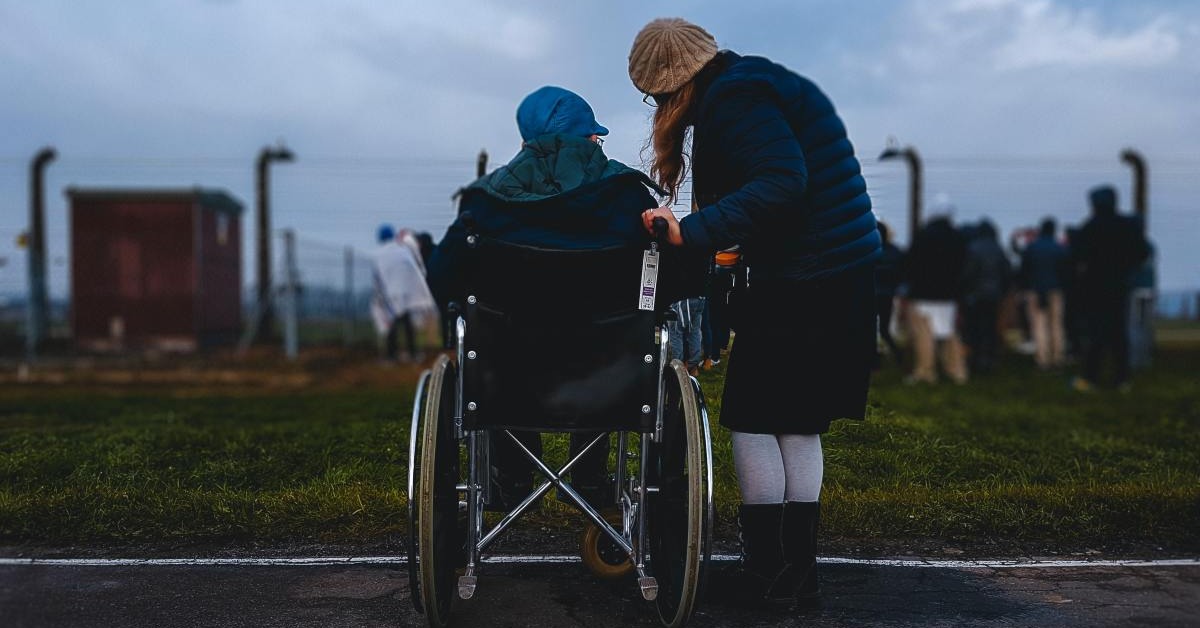
What is a Bachelor of Science in Nursing?
Education requirements for nurses in the U.S. are becoming more [...]

If you are looking for a career providing health care for adults, __becoming an adult-gerontology nurse practitioner (AGNP)__ might be the perfect fit. Applying a comprehensive health care approach with a personal touch, adult-gerontology nurse practitioners diagnose and treat patients of all adult age groups, from teenagers through senior citizens.
Because they are trained as advanced practice registered nurses (APRNs), AGNPs can assess patient needs, order and interpret diagnostic and laboratory tests, diagnose illness and disease, prescribe medication, and formulate treatment plans while emphasizing patient-centered care. In short, they do many of the same things that MDs do.
In this article, we’ll cover:
Read on to discover career paths, pros and cons, educational and licensing requirements and more about this dynamic career choice.
Adult-gerontology nurse practitioners fall into two basic fields: primary care and acute care.
Adult-gerontology primary care nurse practitioners (AGPCNP) establish long-term relationships with patients, providing routine medical care and offering a holistic, wellness-based approach to your patients’ health.
As an AGPCNP, you will:
AGPCNPs become an important part of a patient’s health care team. A crucial element of this role is teaching patients and their families about maintaining their health and preventing disease.
AGPCNPs can work in a variety of settings, including:
Adult-gerontology primary care nurse practitioners may follow their patients in many different care settings, serving as guardians to protect care quality and patient safety during transitions.
If you prefer handling complex patient situations in a fast-paced setting, your niche could be as an adult-gerontology acute care nurse practitioner (AGACNP).
As an AGACNP, you will:
Your work, based on current evidence-based practices, will be designed to stabilize each of your patients and maximize their overall health. By focusing on managing current and ongoing problems and preventing complications, you will play an integral role in ensuring the health of your patients.
AGACNPs typically work in acute care and hospital settings such as:
Regardless of which type of AGNP you choose to become, you will be an integral part of each of your patients’ care team. If helping others is your passion, this is a great way to achieve your goal. You can literally make a difference between life and death for some of your patients, which arguably can be a pro or a con. Here are some other pros and cons of the job:
Whether working in acute care or primary care, a minimum of a master’s degree in nursing (MSN) is required for all nurse practitioner roles, including AGNPs. The MSN degree typically takes two years of full-time study, which generally includes courses in:
You will gain knowledge and skills through both coursework and clinical experience.
The standard of education in this field is shifting, with the Doctor of Nursing Practice (DNP) becoming the desired degree program. In 2004, the schools affiliated with the American Association of Colleges of Nursing (AACN) endorsed the Position Statement on the Practice Doctorate in Nursing, which voiced support for the DNP, saying that our country’s changing health care environment requires nurses with the highest level of scientific knowledge and practice expertise in order to ensure quality patient outcomes.
Earning a DNP generally takes students with a bachelor’s degree three to four years. The DNP curriculum includes classes that enable students to translate research into practice, evaluate evidence, and apply research in health care decision-making.
Before you can become an AGNP, you must first become a registered nurse (RN). To do this, you complete an undergraduate degree in nursing and apply to your state’s board of nursing for a license. Another step in RN licensure is passing the NCLEX exam.
Adult-gerontology primary care nurse practitioners require a board-certified credential from the American Nurses Credentialing Center (ANCC) or the American Association of Nurse Practitioners (AANP).
Adult-gerontology acute care nurse practitioners require a board-certified credential from the American Nurses Credentialing Center (ANCC) or the American Association of Critical-Care Nurses (AACN).
With this credential, nurses can earn their nurse practitioner license from the state where they plan to practice. Nurses in states where NPs have prescribing privileges also need to apply for a DEA number in order to prescribe controlled substances.
Does being an adult-gerontology nurse practitioner sounds like the right fit for you? Check out these resources for more information:
Adult-gerontology nurse practitioners have great flexibility in choosing the type of practice in which they work. They can choose to work in:
Because they are in great demand, AGNPs can move to different settings throughout their career. Many find this flexibility appealing, and it certainly increases employment opportunities.
For many registered nurses, the AGNP role is the logical next step in their careers, increasing both their level of responsibility and their earning potential.
AGNP work can ultimately lead to opportunities in administration and management, although many AGNPs enjoy working directly with patients too much to make the move. Fortunately, your training as an AGNP will leave both of these options open to you.
Questions or feedback? Email editor@noodle.com

Education requirements for nurses in the U.S. are becoming more [...]

Geriatric social workers do meaningful work for the betterment of [...]

Becoming a nurse practitioner can be arduous. The journey requires [...]

A Doctor of Nursing Practice (DNP) degree qualifies you for [...]
Categorized as: Advanced Practice Nursing, Nurse Practitioner, Nursing & Healthcare